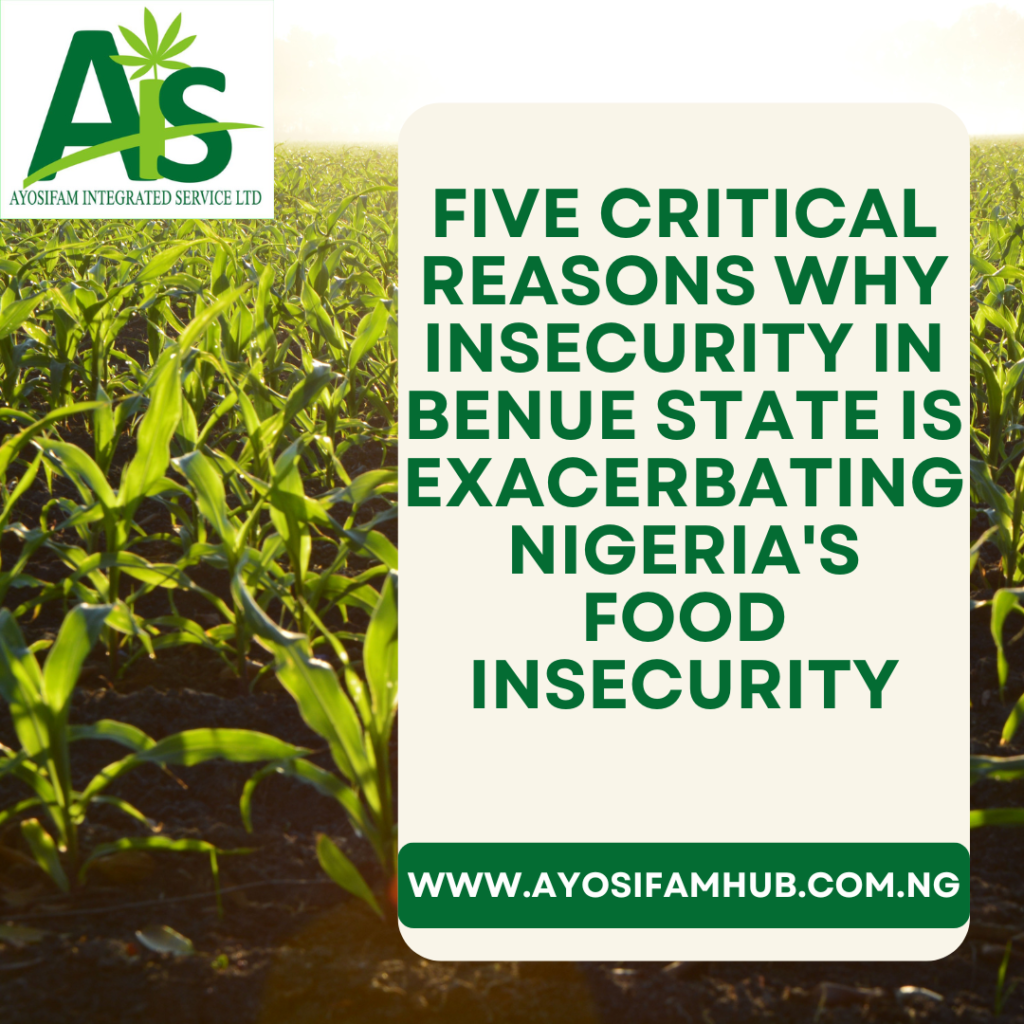
Benue State, affectionately known as Nigeria’s “Food Basket” due to its rich agricultural bounty, is currently grappling with a severe issue of insecurity. This instability, marked by incessant clashes and violence, isn’t just a regional problem; it’s a direct threat to the entire nation’s food security. The ripple effects of a beleaguered Benue are felt on dinner tables across Nigeria.
Here are five critical reasons why insecurity in Benue State is exacerbating Nigeria’s food insecurity:
1. Displacement of Farmers and Farmland Abandonment
The most immediate and devastating consequence of insecurity is the mass displacement of farmers. Thousands have been forced to flee their homes and abandon their fertile farmlands due to frequent attacks, communal clashes, and the pervasive threat of banditry. This leaves vast tracts of cultivable land lying fallow, significantly reducing the amount of food crops planted and harvested. When farmers can’t safely access their fields, the nation’s food supply dwindles.
2. Disruption of Agricultural Activities and Supply Chains
Insecurity directly sabotages the entire agricultural cycle. Farmers are unable to engage in timely cultivation, which is crucial for optimal yields. Essential agricultural inputs like fertilizers and high-quality seeds struggle to reach remote farming communities due to dangerous routes. Furthermore, the safe transportation of harvested produce to markets becomes a perilous undertaking, leading to significant post-harvest losses and limited food availability for consumers.
3. Loss of Lives and Livelihoods
The violence in Benue results in the tragic loss of lives, disproportionately affecting the active farming population. This not only depletes the vital agricultural workforce but also robs families of their primary breadwinners and experienced cultivators. For survivors, the destruction of homes, farming tools, and livestock completely decimates their livelihoods, pushing countless families deeper into poverty and hunger.
4. Increased Cost of Food Production and Distribution
Farming in insecure regions naturally drives up costs. Farmers might have to allocate resources for personal security, and the risks involved lead to higher transportation costs due to longer, safer routes or increased insurance premiums. The scarcity of produce resulting from low output also inflates market prices for staple foods. This makes basic foodstuffs less affordable for the average Nigerian, directly contributing to widespread food insecurity and economic hardship.
5. Reduced Investment in Agriculture
The volatile environment in Benue State creates a significant deterrent for both local and foreign investment in the agricultural sector. Without adequate capital infusion into modern farming techniques, improved infrastructure, and processing facilities, the region’s immense agricultural potential remains largely untapped. This stagnation prevents the necessary scaling up of food production required to feed Nigeria’s rapidly growing population.
Given these dire consequences, it is absolutely imperative that the government takes prompt and decisive action to protect lives and property in Benue State. Ensuring the safety and security of farming communities is not just a matter of upholding law and order; it is a fundamental prerequisite for boosting agricultural output, stabilizing food prices, and ultimately, alleviating poverty across Nigeria.



